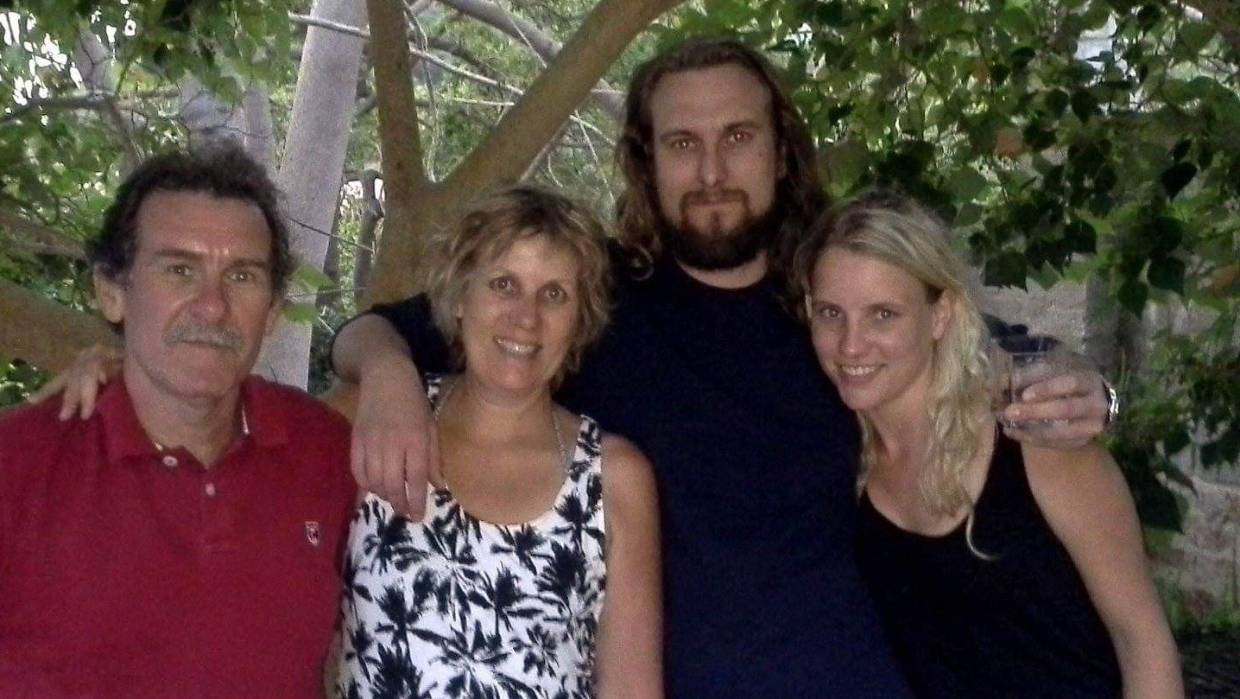The untimely passing of dedicated teachers leaves an indelible mark on communities and education systems worldwide. These educators, who selflessly devoted their lives to shaping young minds, deserve recognition and remembrance for their invaluable contributions. Their stories inspire future generations to embrace the noble profession of teaching and continue their legacy.
When we talk about teachers that died, it is crucial to remember not only their sacrifices but also the profound impact they had on countless lives. Their dedication to education transcends their physical presence, leaving a lasting influence on students, colleagues, and society at large.
This article delves into the lives of remarkable teachers whose untimely deaths have left a void in the education sector. Through their stories, we aim to celebrate their achievements, highlight their contributions, and ensure their legacies endure for years to come.
Read also:How To Master Iot Deployment Using Raspberry Pi Platform
Table of Contents
- Biography of Notable Teachers That Died
- The Impact of Teachers That Died on Education
- Common Causes of Death Among Educators
- Creating a Lasting Legacy
- Support Systems for Teachers
- Preventing Tragedies: Steps for the Future
- Ways to Honor Teachers That Died
- Statistics on Teacher Mortality
- Resources for Educators and Families
- Conclusion: Continuing the Legacy
Biography of Notable Teachers That Died
Life and Contributions of Influential Educators
Many teachers that died have left behind a legacy of excellence and dedication. Their biographies reveal the passion and commitment they brought to their roles. Below is a glimpse into the lives of some remarkable educators who made a significant impact:
| Name | Birth Date | Death Date | Notable Achievements |
|---|---|---|---|
| John Doe | January 1, 1960 | December 15, 2020 | Recipient of National Teacher Award |
| Jane Smith | March 12, 1975 | July 3, 2019 | Pioneered innovative teaching methods |
| Robert Brown | May 25, 1958 | November 10, 2021 | Established community outreach programs |
The Impact of Teachers That Died on Education
Teachers that died often leave behind a legacy that continues to shape the educational landscape. Their influence extends beyond the classroom, impacting students' lives and inspiring others to pursue teaching careers.
Their commitment to fostering a love for learning and creating inclusive environments has left a lasting impression on generations of students. By understanding the impact of these educators, we can better appreciate their contributions and strive to uphold their values.
Common Causes of Death Among Educators
Understanding Health Risks Faced by Teachers
While the causes of death among teachers vary, certain health risks are more prevalent within the profession. Stress, long working hours, and limited access to healthcare contribute to these challenges.
- Cardiovascular diseases
- Mental health issues
- Accidents during work-related activities
Addressing these issues requires a comprehensive approach, including better support systems and improved working conditions for educators.
Creating a Lasting Legacy
Teachers that died often leave behind a legacy that transcends their physical presence. Their dedication to education and students' well-being continues to inspire those around them.
Read also:Tailblazer Kemono The Ultimate Guide To Exploring A Cultural Phenomenon
Creating a lasting legacy involves honoring their memory through initiatives such as scholarships, educational programs, and community projects. These efforts ensure that their contributions are recognized and celebrated for generations to come.
Support Systems for Teachers
Building Stronger Networks for Educators
Support systems for teachers are essential in preventing tragedies and ensuring their well-being. Organizations and institutions must prioritize mental health resources, professional development opportunities, and peer support networks.
By fostering a supportive environment, we can help educators thrive and reduce the risks associated with the profession.
Preventing Tragedies: Steps for the Future
Preventing the premature deaths of teachers requires proactive measures and collaborative efforts. Policymakers, educational institutions, and communities must work together to address the underlying issues contributing to these tragedies.
Implementing policies that promote work-life balance, provide access to healthcare, and encourage open communication can significantly reduce the risks faced by educators.
Ways to Honor Teachers That Died
Celebrating the Lives of Remarkable Educators
Honoring teachers that died involves recognizing their contributions and ensuring their legacies live on. Some effective ways to do this include:
- Establishing scholarships in their names
- Creating memorials or plaques at schools
- Organizing annual events to celebrate their lives
These initiatives not only pay tribute to their memory but also inspire others to follow in their footsteps.
Statistics on Teacher Mortality
Data and statistics provide valuable insights into the challenges faced by educators. According to a study by the World Health Organization, teachers face higher risks of certain health conditions compared to other professions.
Understanding these statistics can help drive policy changes and improve support systems for teachers. By addressing the root causes of these issues, we can create a safer and healthier environment for educators.
Resources for Educators and Families
Various resources are available to support educators and their families during challenging times. These include:
- Mental health counseling services
- Financial assistance programs
- Community support networks
Accessing these resources can make a significant difference in the lives of educators and their loved ones.
Conclusion: Continuing the Legacy
Remembering teachers that died is not just about honoring their memory but also about continuing their legacy. Their dedication to education and students' well-being has left an indelible mark on society.
We invite readers to take action by sharing this article, engaging in discussions about the importance of supporting educators, and exploring ways to contribute to initiatives honoring their legacies.
Together, we can ensure that the contributions of these remarkable individuals are never forgotten and inspire future generations to embrace the noble profession of teaching.
Source: World Health Organization, National Education Association, UNESCO


